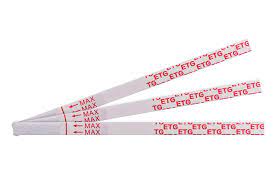What is the Main Purpose of ETG Test Strips & How Does it Work?
When an individual who is not supposed to drink alcohol takes the EtG alcohol test, it is determined if alcohol has been consumed. The doctors and the staff at New Life Medical Addiction Services are happy to answer any sort of questions patients may have all about EtG alcohol tests.
In most cases, urine tests are known to be performed. Ethyl glucuronide (EtG) is yet defined as the breakdown product of ethanol, the intoxicating component of the alcohol, and is used as a test for the sake of alcohol use. EtG test strips are usually found to be detected by analyzing a person's urine, but it can even be detected by simply examining the patient's hair and the nails.
How does the EtG alcohol
test work?
EtG is one of the
metabolites created when the body consumes alcohol. The metabolite EtG is
produced by ethyl alcohol.
Monitoring abstinence
from alcohol can be beneficial with the EtG test. EtG tests can verify that a
person did not consume alcohol before a breath test, which breathalyzers cannot
do. Testing for EtG is susceptible and can provide false positives if even tiny
amounts of alcohol are consumed.
Certain
ethanol-containing products, including: can cause false positives
·
Sanitizers for hands
·
Using mouthwash
·
Breathing spray
·
Men's aftershave
·
Beauty
·
Products for household cleaning
·
Alcohol-based foods
·
Hair dies
·
Antiperspirants & deodorants
·
Beverages marketed as non-alcoholic but
contain traces of alcohol (near beer, soda, etc.)
What you have to Expect
from EtG Alcohol Test?
It is the most accurate
EtG test for confirming that a person hasn't consumed any alcohol in the days
preceding the test. The presence of the positive EtG test usually indicates upon
one such person has been exposed to the ethanol in the days that have somehow led
up to the urinalysis.
Even with this as the
test's goal, ethanol can only be detected in a person who has consumed alcohol
within the previous seventy days. This figure jumped to 85 percent for moderate
to heavy drinkers in a study.
If an EtG test strips result is found to be negative,
the person was not at all exposed to alcohol during the course of testing
period (up to five days).
As well as ethanol
exposure through consumption of the items mentioned previously, there are
circumstances where a person might test positive for EtG even if they have not
consumed an ethanol-containing product.
In the case of
non-correctly stored urine samples, EtG levels can rise over time due to
bacteria growing in the sample if it is left at room temperature too long. If
an EtG test cannot be shipped within a recommended timeframe, it is recommended
that samples be refrigerated.
Diabetes patients with
urinary tract infections may also produce EtG, resulting in positive results.
Individuals with diabetes are the only ones who can experience this.




Comments
Post a Comment